VMAN 47 COVER STAR: LIL NAS X
The pop-rap superstar tells musician Kevin Abstract how his in-your-face performances help him live just as unapologetically

This cover story appears in VMAN 47 available for purchase now
Lil Nas X’s road to fame wasn’t paved with gold—it was lined with jewel-encrusted cowboy hats, addictive TikTok challenges, and satanic strip-teases. From his first “yee-haw”, the rapper’s ascendance has been a pop culture anomaly…and the world hasn’t been quite the same since. Nas, born Montero Hill, debuted with his viral crossover hit “Old Town Road’’ in 2019 and was catapulted into mainstream stardom almost overnight. Many chalked the song’s record-breaking, nineteen consecutive weeks on the charts up to beginner’s luck, but the Georgia-native spent every waking second proving he’s more than a one-hit-wonder. Solidifying his staying power with singles “Panini’’ and “Rodeo” from his debut EP 7, Nas’ cult-like fan base earned the project a No. 2 spot on Billboard’s Hot 200 Chart. Going against the grain, Nas didn’t subscribe to hip-hop’s notoriously out-dated notions and toxic machismo. Instead the rapper leaned full force into his truth and embraced all facets of his being—powering the rise of a new age emblem for queer liberation and expression.
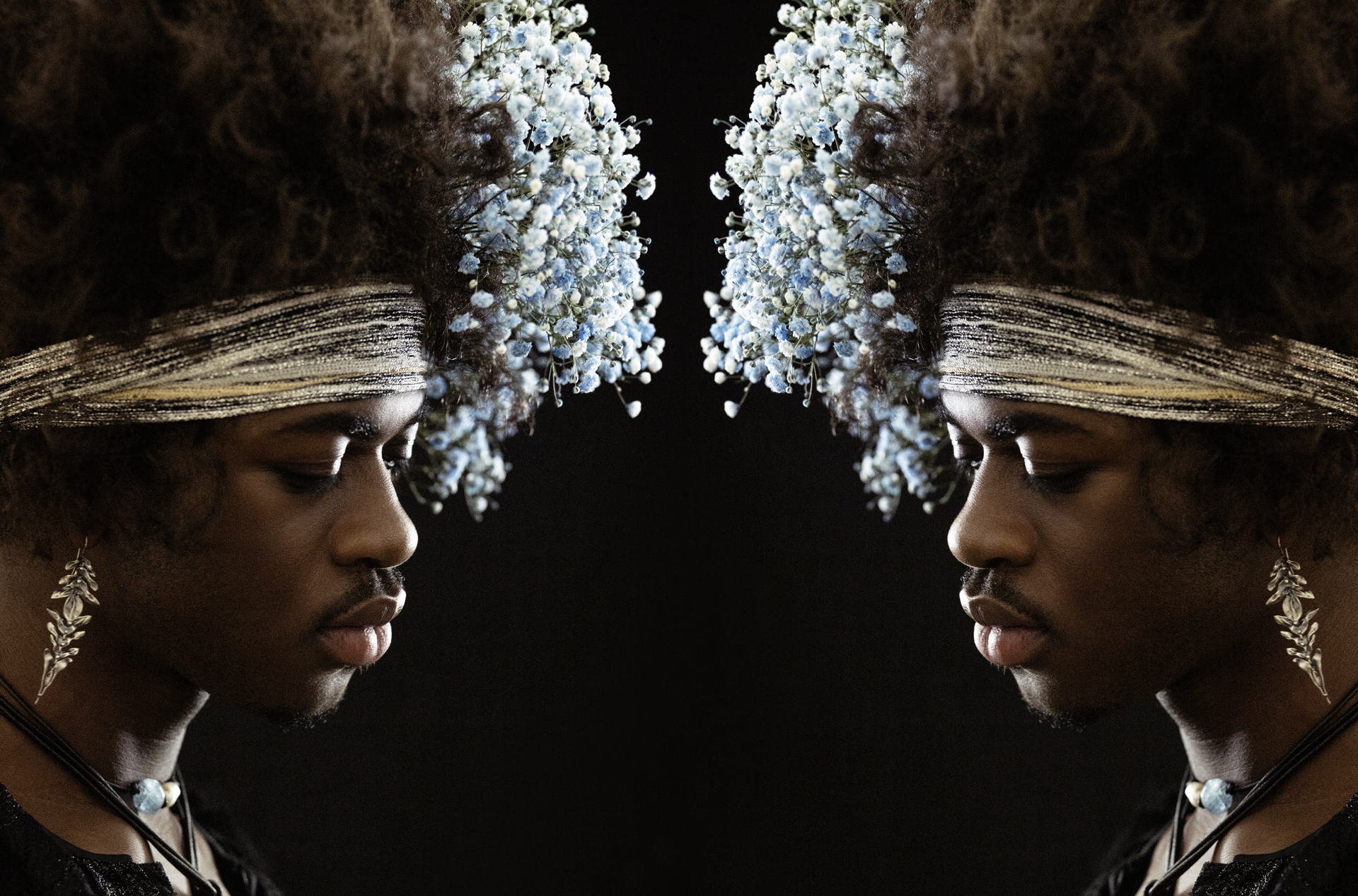
The 22-year-old pioneer masterfully merges hip-hop and pop, signaling the turn of a new era for the sub-genre we know as hip-pop. Through witty one-liners laced with infectious beats, a flair for shock value showcased in music videos like “Montero,” and his unapologetic sense of self, we’ve all grown to know and love the persona that is Lil Nas X. But so much more lies behind his moniker. His highly anticipated debut album MONTERO explores themes of self-acceptance, queer romance, and navigating familial issues—serving as a chronology, interweaving Nas’ past and present, while looking to his future. Connecting with fellow queer rapper and kindred spirit, Kevin Abstract (of BROCKHAMPTON), the two boundary-breaking musicians come together for a candid conversation on Nas’ journey from college drop-out to two-time Grammy award-winning rapper.
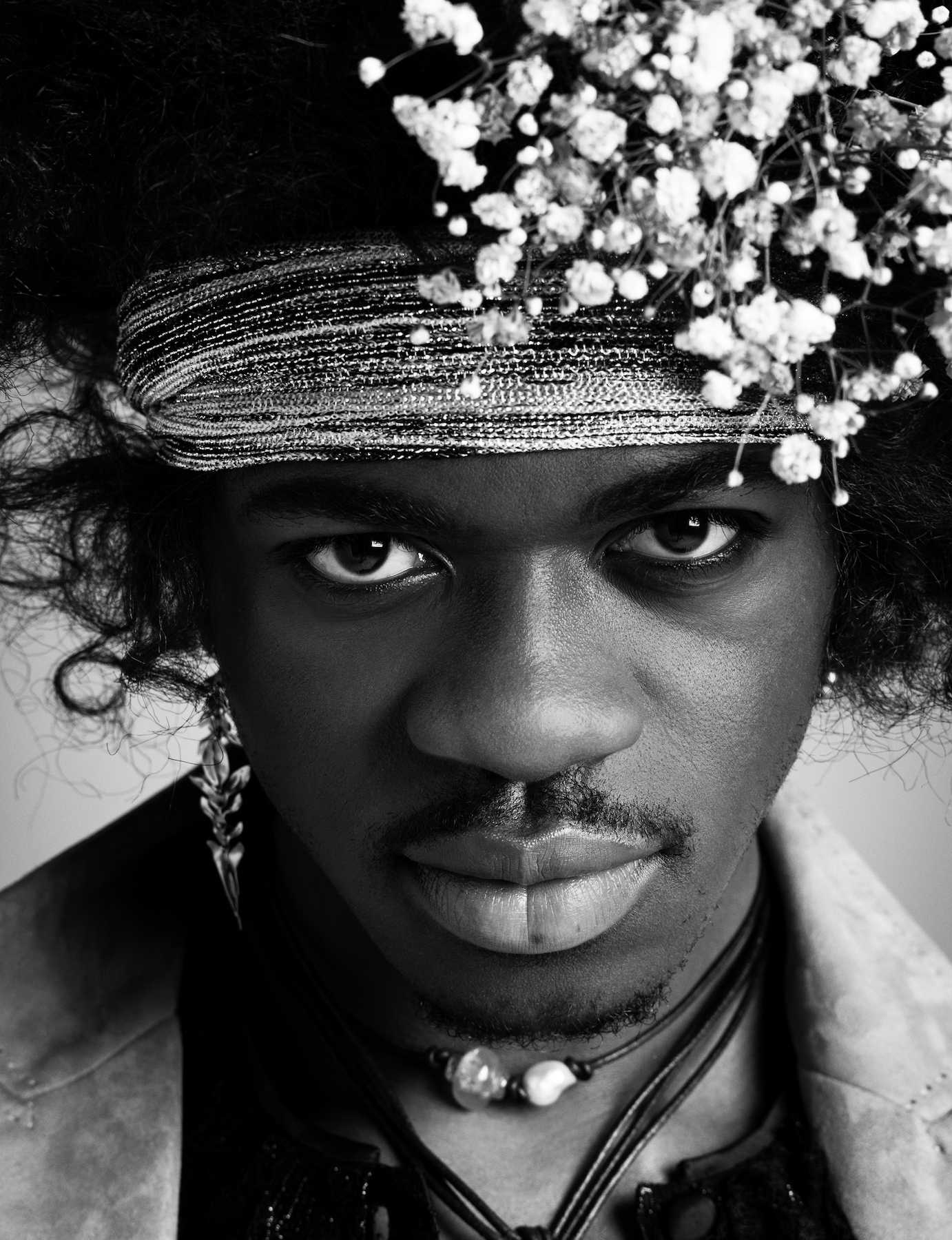
Kevin Abstract: Who are some of the artists you were raised on?
Lil Nas X: Of course, Nicki [Minaj]! And definitely almost everybody in the pop world. You know, the Lady Gaga’s and Katy Perry’s of the industry. Strangely, I also had a big 50 Cent phase when I was young, and following that was probably my Tyler, The Creator and Frank [Ocean] phase. I was into a lot of different stuff.
KA: You had a good variety of genres there. It definitely makes sense when I think about your music.
LNX: Definitely a lot of variety in there.
KA: Do you feel like if there weren’t artists like Frank [Ocean] that came before you, you still would’ve had the courage to be as open as you are about who you are?
LNX: I feel like without Frank and people like you—it definitely would’ve been much more scary. I feel like for everybody, no matter who the artist is, there’s always some person that in some way made them feel slightly more okay with doing something and being themselves…you know? That’s what you guys did for me.
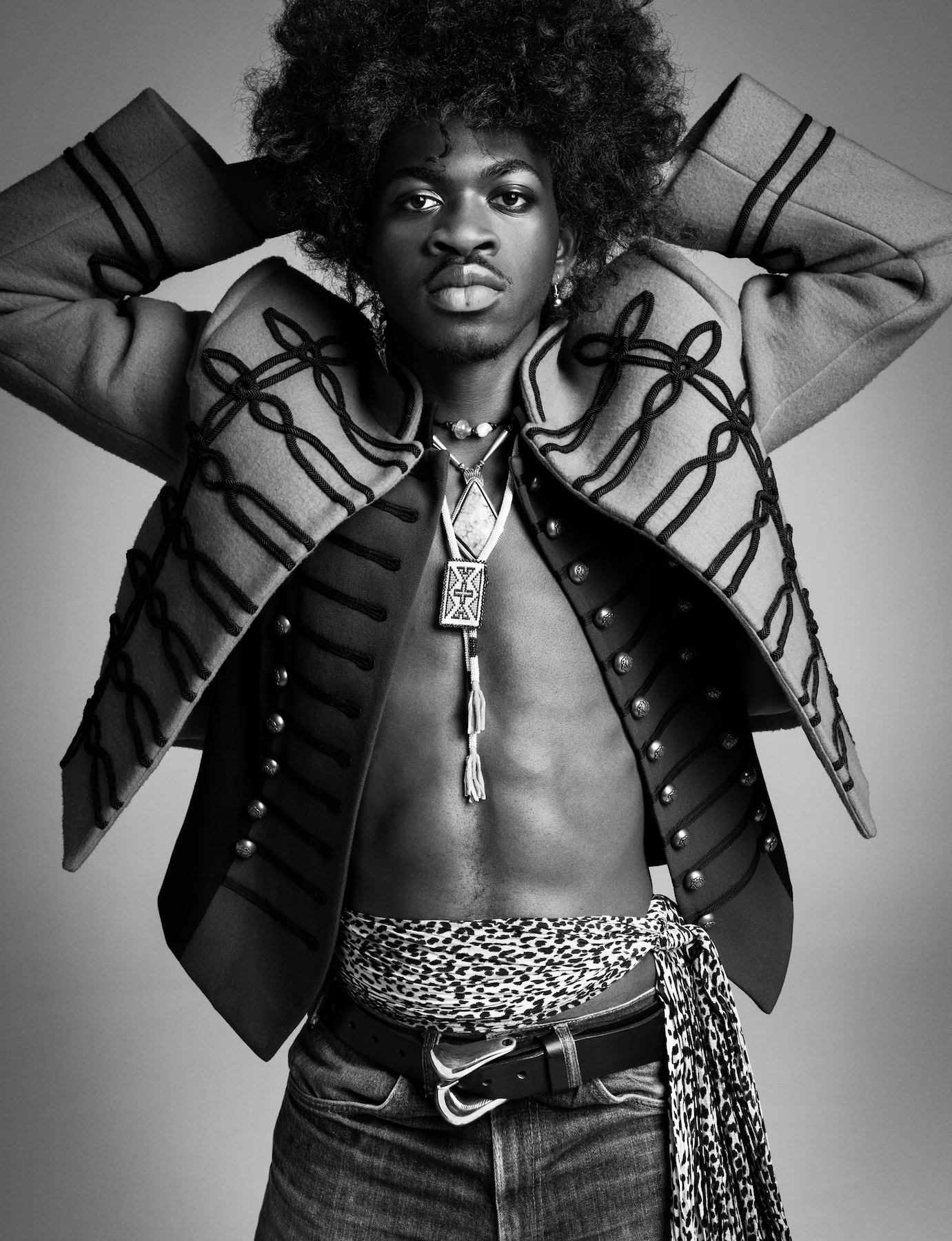
KA: Thanks. That really means a lot.
LNX: Honestly, you did that for me, at a time where I wasn’t fully comfortable with who I was. Especially ‘cause you’re like, really straightforward a lot of times with your lyrics. With a lot of gay artists, understandably, it’s very much metaphor. It’s almost like this could possibly be about a guy.
KA: Yeah, it’s more low-key for some, right. How do you feel like living in Georgia shaped your sound and your artistry, if it did at all?
LNX: I don’t feel like it shaped [my artistry] at all. Once you get into your teenage years, you start to listen to the music that kind of defines your taste. So I listened to a lot of shit that I’d heard on the Internet…things that other people weren’t really into. I would say that had more of an influence on my sound. Now, of course, I was listening to Young Thug and whoever was popping at the time, [in Atlanta], but I was more into the alternative shit I found online. Around that time I also got into BROCKHAMPTON as well. I would say the Internet almost opened me up to another world musically, and the music I found there was definitely a change of pace compared to the stuff I heard around me. It was good to hear other shit besides Atlanta music, because a lot of it sounds very similar. I guess it’s because it’s all coming from the same place.
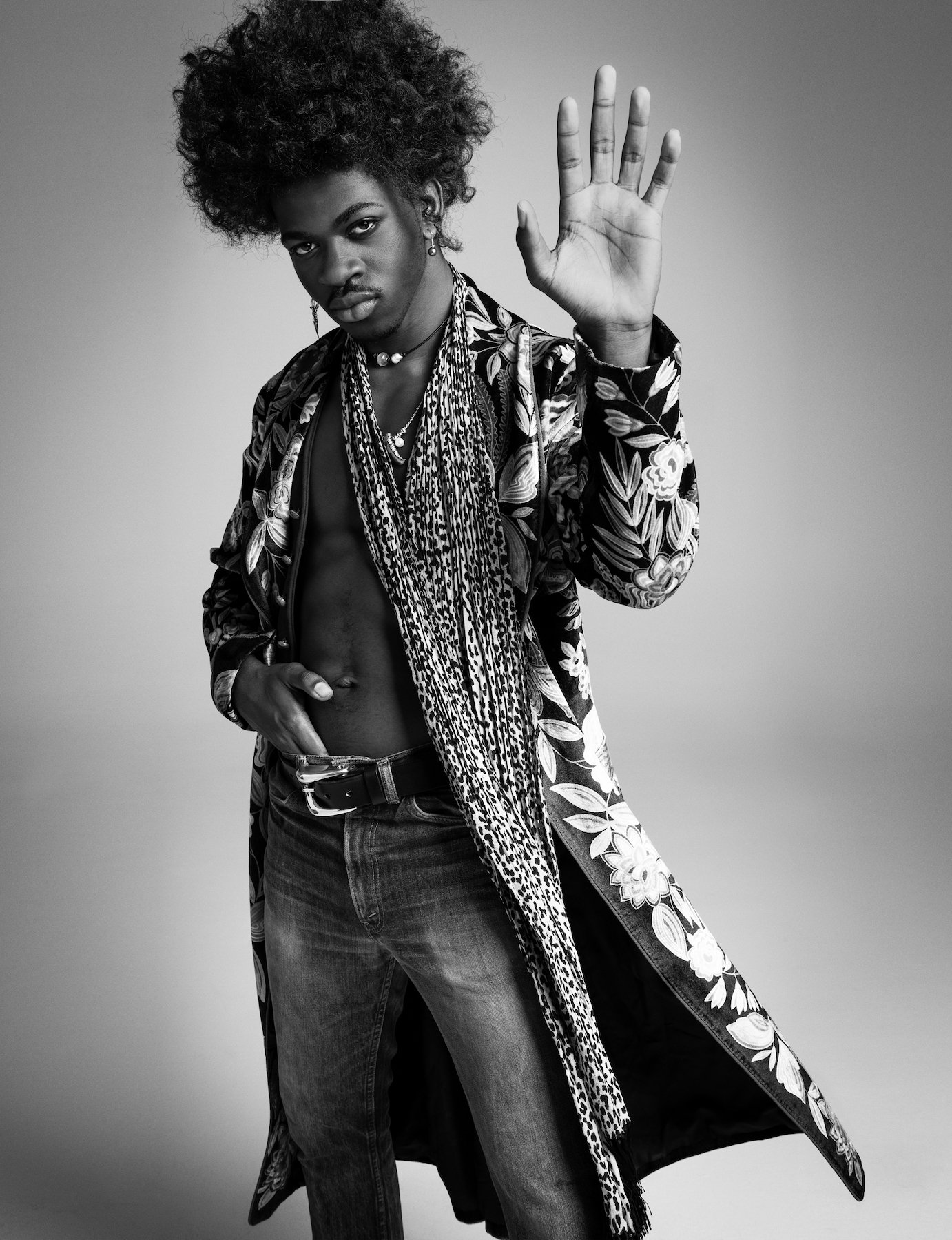
KA: So, do you feel like you’re bringing a new sound to Atlanta music or the hip-hop scene at all? Or do you feel like it’s more global?
LNX: Absolutely. But I also feel like my music has always been different. So, when I hear “new sound,” it’s like which one? (Laughs). I think my music touches on many different genres but it’s all through my [lens]. Some of the [music] I make is purposefully nostalgic, so it’s borrowed from another sound.
KA: That’s cool. Do you feel that you’re more of a pop star, or a rapper?
LNX: I’m definitely much more of a pop star now than a rapper. If you asked me that two years ago, I would’ve said rapper.
KA: I think that’s awesome. Now, let’s get into the album. How long did you spend working on it?
LNX: I mean, it’s probably been about two years [in the making]. A lot of the songs I first played for you are not even part of the album anymore. It’s been a lot of back and forth. It’s been a long journey, though.
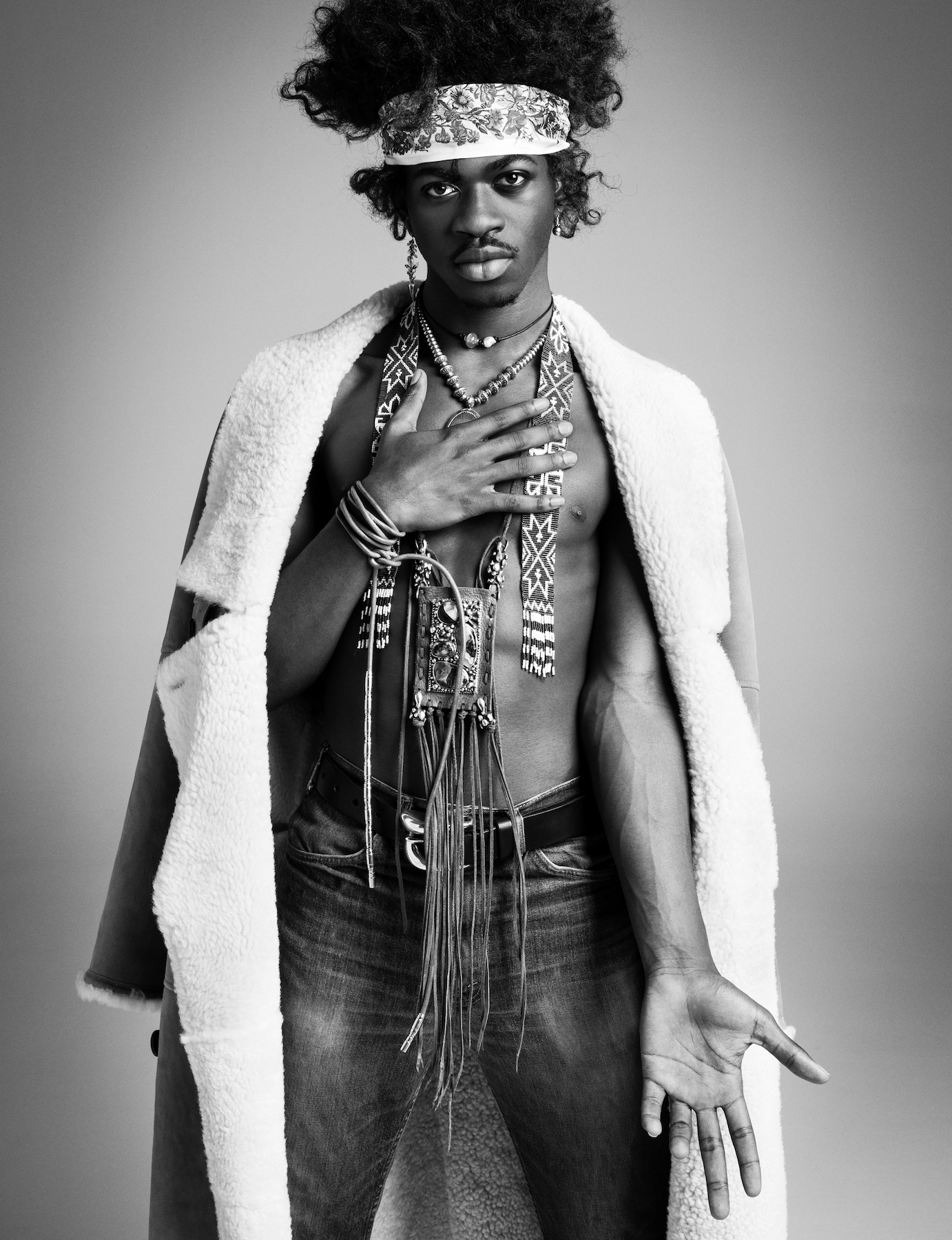
KA: What’s the vibe like when you go into the studio? How do you create that magic?
LNX: I go into the studio, and we talk for a minute basically to set the mood. We talk about what’s happening in the world or how we are feeling, and then we go into the music. A lot of the time, we pull from those conversations to make [a song] from scratch—which is my favorite thing to do because it opens up a world of possibilities for what a song can end up becoming. It also makes the music feel more personal.
KA: Speaking of personal, have your relationships inspired any of your songs?
LNX: That’s a jump in questions (Laughs). But yeah, to a certain extent it definitely has.
KA: How old were you when you had your first boyfriend?
LNX: First boyfriend? I think maybe 18 or 19. It was very late, like, in college. I don’t even know if you can say “boyfriend” if it’s very much a “nobody knows about it, down low,” situation.
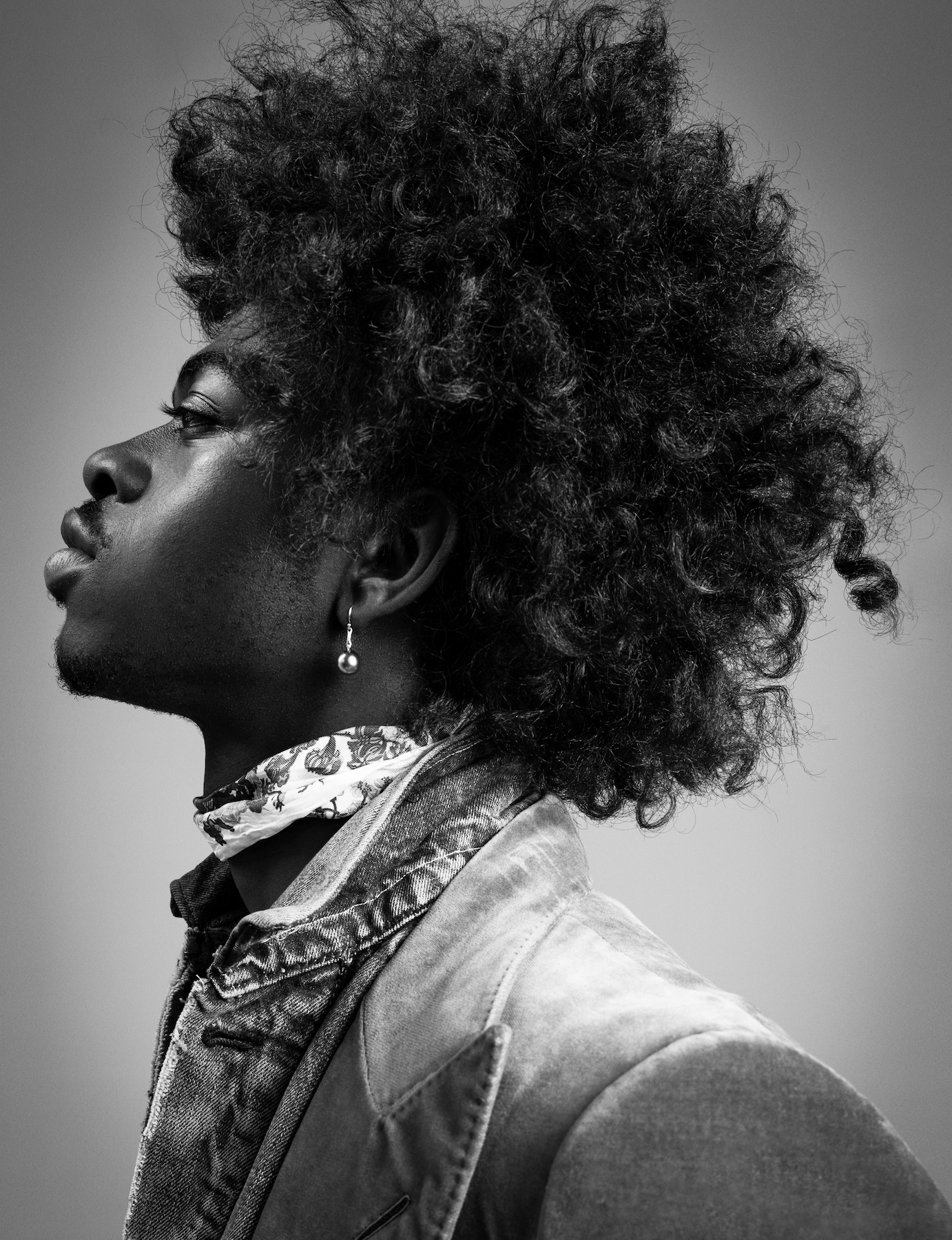
KA: Have you ever written any songs about that experience, in particular?
LNX: I don’t think I have. That sounds like a great song to write, but I haven’t written it yet. I’ve definitely written about him, but not the basics of starting a relationship with a guy for the first time or anything like that.
KA: How does your dating life compare to now? If you are even dating?
LNX: I’m actually about to go on [a date] right after this interview.
KA: Really? Do you typically go on dates during the day or is it mainly a nighttime thing?
LNX: Yeah, It’s usually at night. This is actually probably the first daytime date I’ve done in a minute.
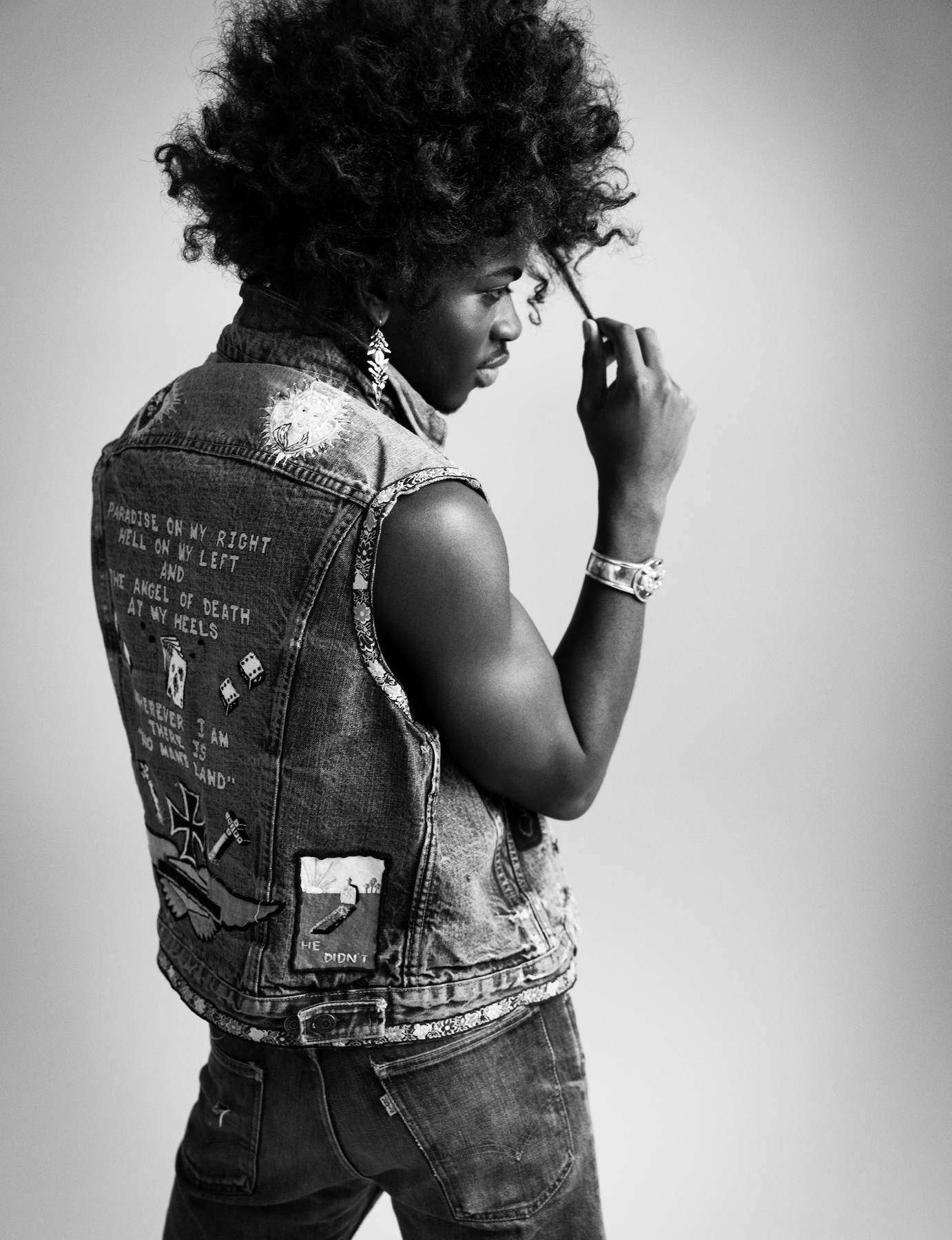
KA: How’d you guys meet?
LNX: We met around the time that I was about to do the SNL thing. But we just started dating maybe two weeks ago.
KA: How does it feel? Are you happy? How does it feel not hiding?
LNX: I feel like this is one of the best [relationships] yet. I’m really happy about it, and it all just feels natural. It’s effortless.
KA: I’m happy for you man. That’s amazing.
LNX: Thank you so much.
KA: I think this is the perfect [segue] into the single “Montero.” The song was really about owning every part of yourself. It was liberating for a lot of people. Beyond that, artistically speaking, one thing that stood out to me was how you conceptualized the visual. I remember after the video came out, you released these screenshots of your notes, where you wrote the whole treatment out. What did it feel like when that vision for the video came to your head? Did you think maybe I am going too far or did you lean completely into the idea.
LNX: My mind is always like, “You can’t really create that. That’s not really realistic,” but I always tell myself to just write it down anyway, and if I change my mind, I change my mind. Although, I almost never change my mind (Laughs). For me, it’s always crazy to see it come to life, because it’s never exactly how you pictured it in your head…because nobody can actually see what’s in your head. But it always comes out better than I expected. I’m learning to trust myself and my vision. I think the [“Montero”] video was just the start.
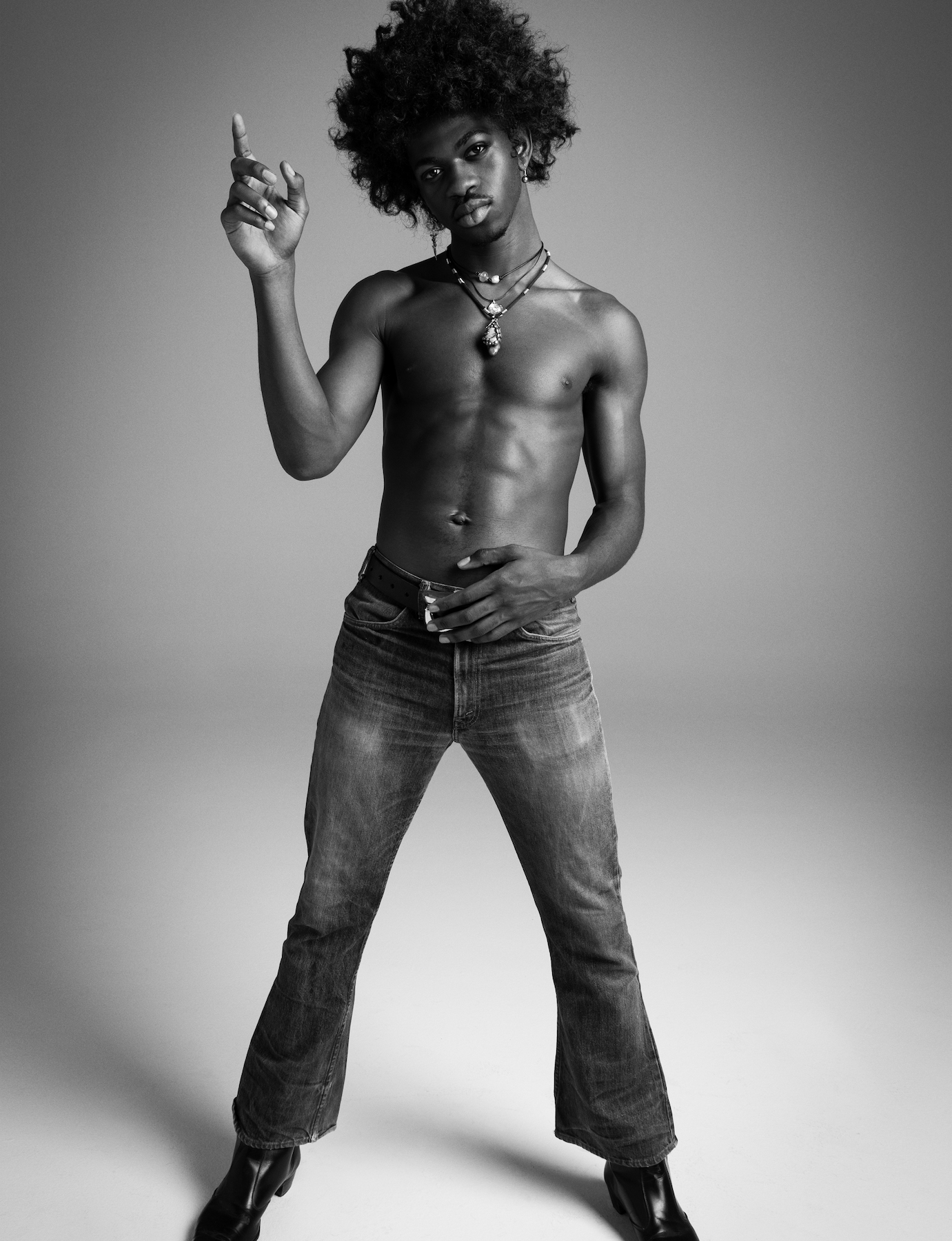
KA: You were raised Christian, so how did your family respond to the “Montero” video?
LNX: My dad texted me the next morning. He was like, “I got through it.” Almost as if it was a bad movie or something. Even that was great [to me]. The rest of my family, I don’t think everyone’s going to be 100 percent honest with me about how they felt. But a lot of them were understanding, to say the least. And I understand from their perspective as well, growing up learning about certain groups of people and it conflicts with what you believe. Or rather what’s been pushed into your head over and over. I can’t really be to upset with you about what’s been forced into your head. So even if [they were] upset, I would understand, you know?
KA: Definitely.
LNX: And I’m not saying I would coddle them, but yeah, I understand.
KA: And that’s big of you. [The fact] that you try to understand where people are coming from although they may not do the same for you. I can tell family is a big thing for you.
LNX: Family is very important, because it’s like, these are the people who’ve known you the longest. These are the people who you’ve learned to trust…a lot of the time—not all of the time. I feel like, with where I’m at in life, I’m very much a spiritual person in terms of the universe. I believe it’s my duty to help, too, you know. It’s my duty to pass down the knowledge I’ve acquired about life to my family, or pass it up, because a lot of times I’m a mentor for people that are older than me.
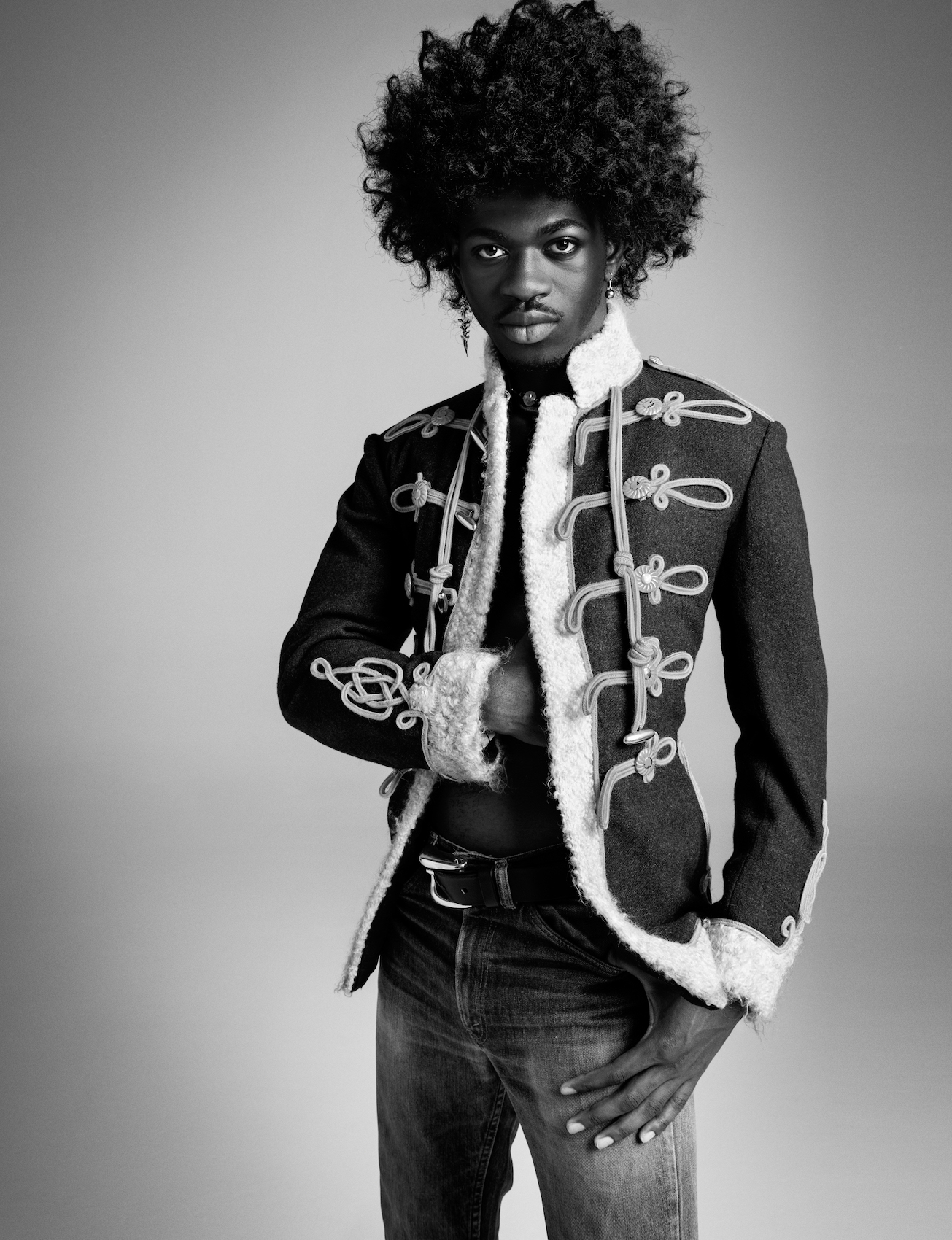
KA: I think that’s something we can all appreciate and relate to in some way. Is it true that your dad was a gospel singer?
LNX: Yeah, my dad is a gospel singer. He still sings gospel. Not as much as he used to.
KA: Do you feel like that influenced your sound at all? Or inspired you to pursue music?
LNX: To certain degree…it did. My dad is an amazing singer and he has some great songs. I feel like if he wanted to be like a Kirk Franklin or something, he absolutely could. But maybe that wasn’t his wish. I guess [he] inspired me to say, “Wow, if my dad can go out there now, at almost 50 years old, and make music, what’s stopping me?” It was definitely a part of what pushed me. I actually ended up using one of his engineers for some of my earlier music.
KA: That’s amazing! So, he kind of helped you understand recording and stuff like that? Or did you watch from afar and put it together for yourself?
LNX: More from afar. But he’s definitely been an inspiration for me and a major influence.
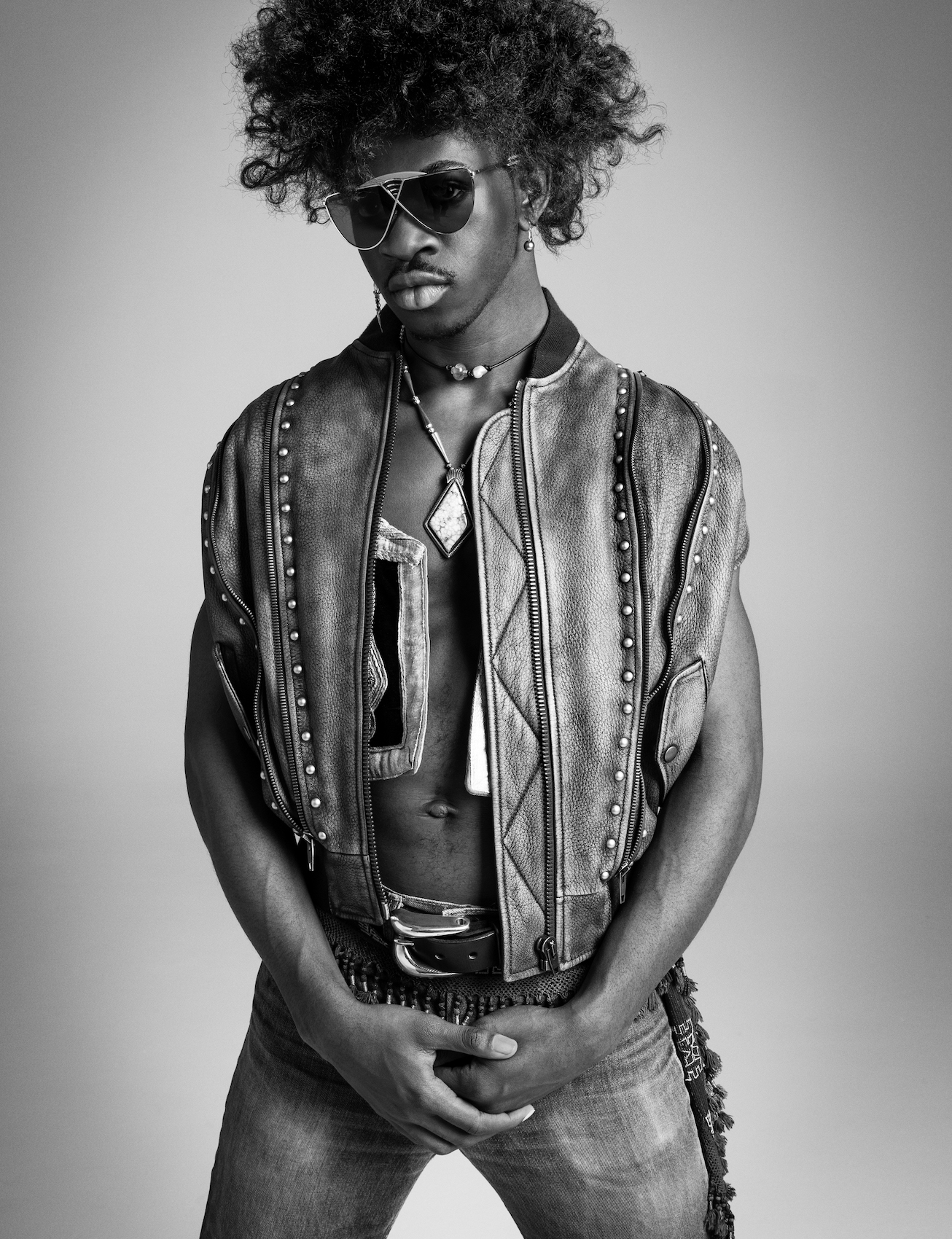
KA: It’s cool to hear that even that genre of music is something that has inspired and influenced you. After the [“Montero”] video came out, there was a lot of crazy shit on the Internet…more than usual. How do you deal with hate and cope with the backlash?
LNX: I usually don’t care much, honestly. I guess because I’ve been online, and I’ve been an online hater before. Looking from that perspective, I understand that those people don’t even genuinely care about the things they hate on [me for]. It’s more of an internal thing. I sympathize with them more than anything, I guess. I feel like the only time I do get upset with hate comments is when I’m already upset about something else. It becomes this thing of “This is why I’m mad,” but in all actuality I’m upset about something else. Probably something that I am dealing with in my personal life. In those moments, I’m just like, “Okay, tomorrow I’ll be happy.” So, let’s let this little moment have its moment, and then let’s get back to work. Or, let’s focus on something else that’s positive.
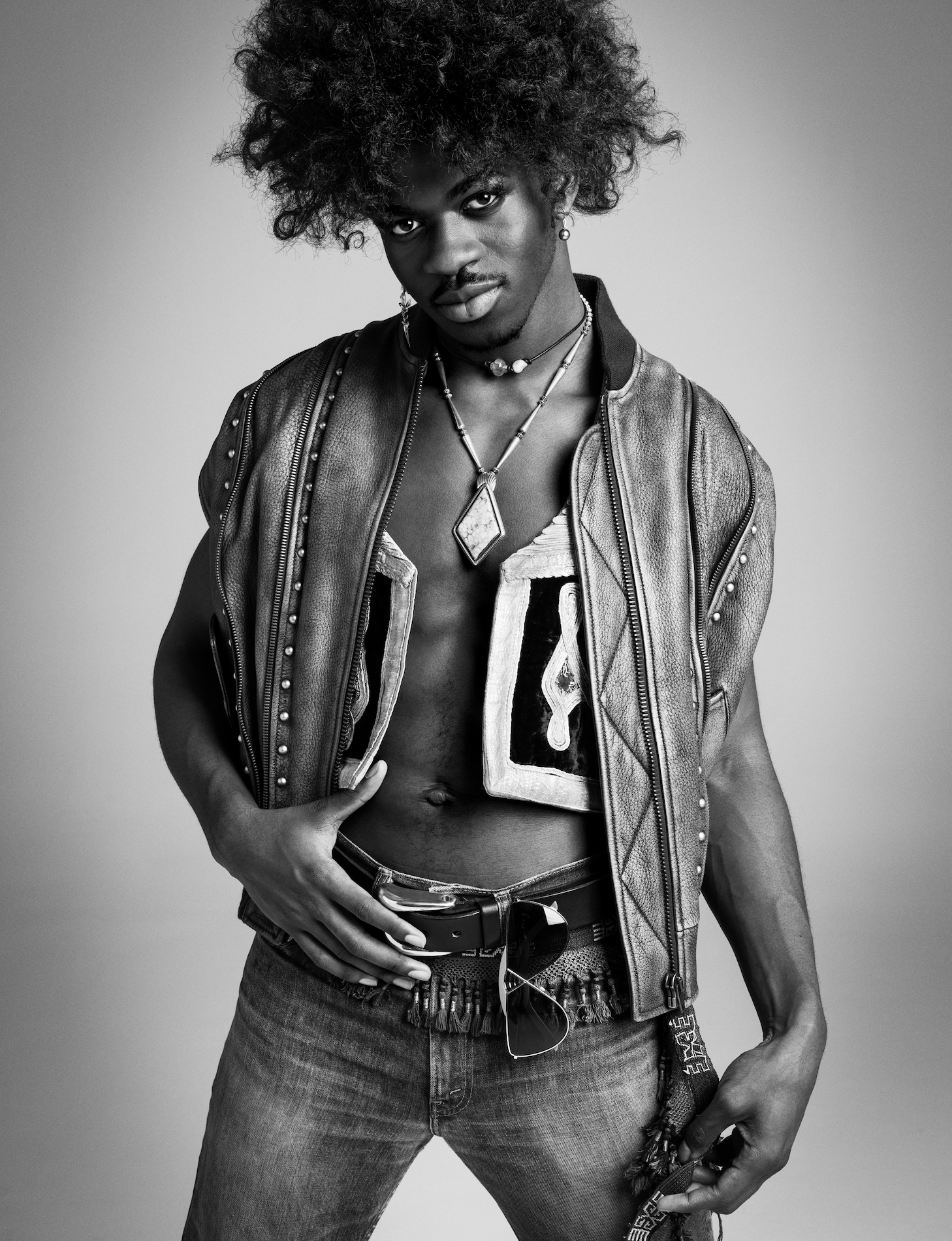
KA: How would you say this era of Lil Nas X is different from the last era? What’s different about this body of music or your artistry this time around?
LNX: I feel like I’m much less concerned about anybody’s thoughts and opinions on what I decide to do. The only opinion that matters is my own, especially when it comes to what I create.
KA: That definitely translates onto the tracks I’ve already heard. I know it’s a loaded question— but what is the album about?
LNX: The album is me inviting people into the world of me…into the world of Montero. The project gave me the opportunity to bravely show different parts of myself. Parts that I may not have shown so openly previously. [From] being super aggressive at times on some songs [to] being cocky about where I feel that I’m going in life, and even being vulnerable with talking about relationships with my mom and family members. The album also touches on my love life and what I want to see in my love life. It’s like a lot of different themes that involve me, Montero. It’s really personal, but it’s also something everyone can listen to and relate to.
KA: Do you have a favorite song on the album?
LNX: I do. I don’t know if I can talk about it, though, because I don’t want to spoil anything…I’m just going to say it!
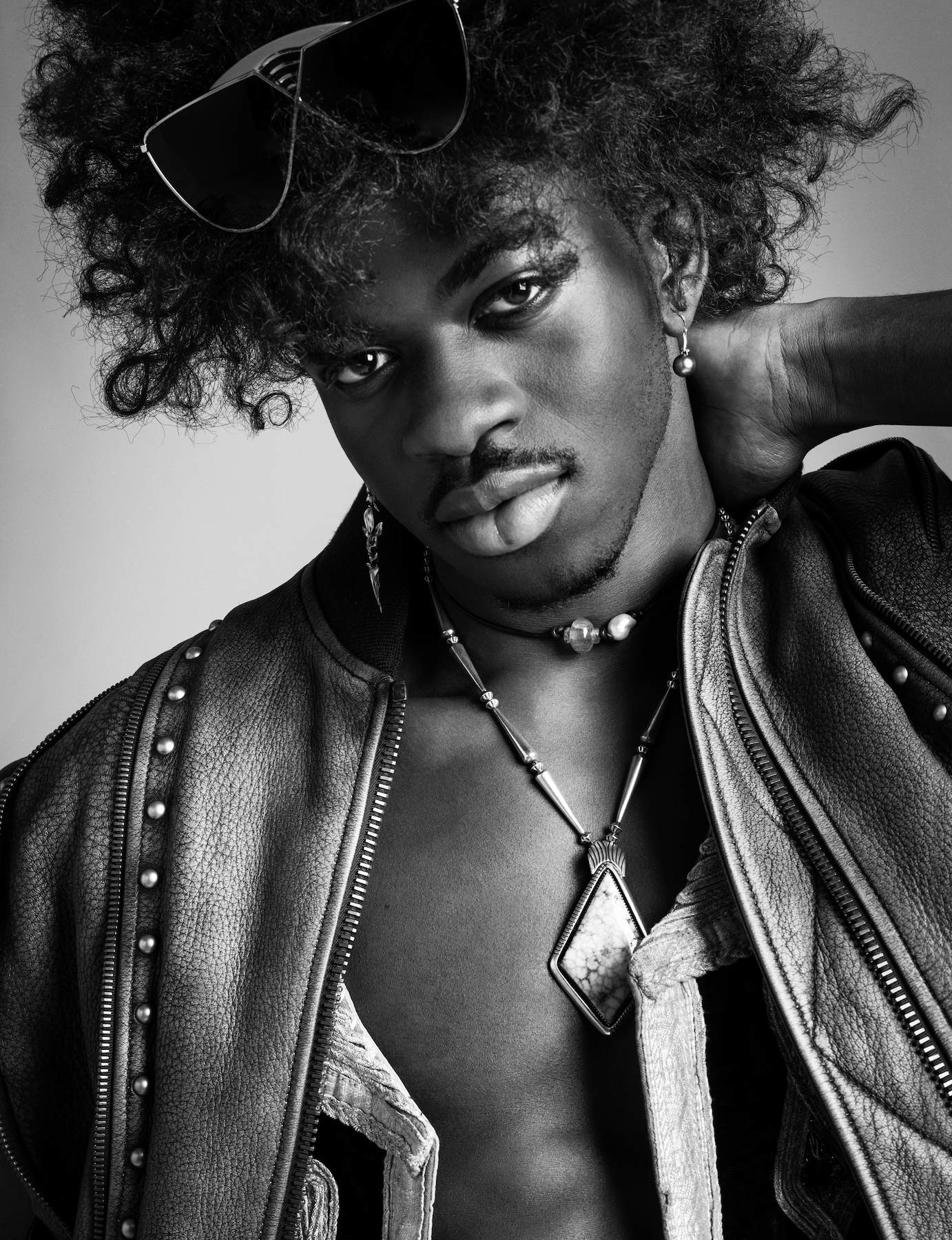
KA: Yeah!
LNX: Right now, my favorite song is “Industry Baby.”
KA: Why that one? I know all of the songs are special, but why this one?
LNX: I felt like, with this song, I was able to be as confident as I want to be. This is my underdog anthem, and when people listen to it, it will get them hyped up! It has a feel-good vibe to it. I’m happy to have that song on the album.
KA: What’s the takeaway for the album? What do you want fans to leave with when they listen to the album from start to finish?
LNX: When making this [project] I took a moment to look at my past and my present. I was able to see how much has changed, how much I’ve grown—not just as an artist but in my personal life as Montero. It really puts things into perspective for me and makes me more excited about my future and where I’m going. I want everyone to be left with feeling like they’ve learned more about me and through learning more about me, somehow they’ve learned more about themselves. I want the takeaway to be that it’s okay to be yourself, and I mean every aspect of your true self.
This cover story appears in VMAN 47 available for purchase now
Discover More
